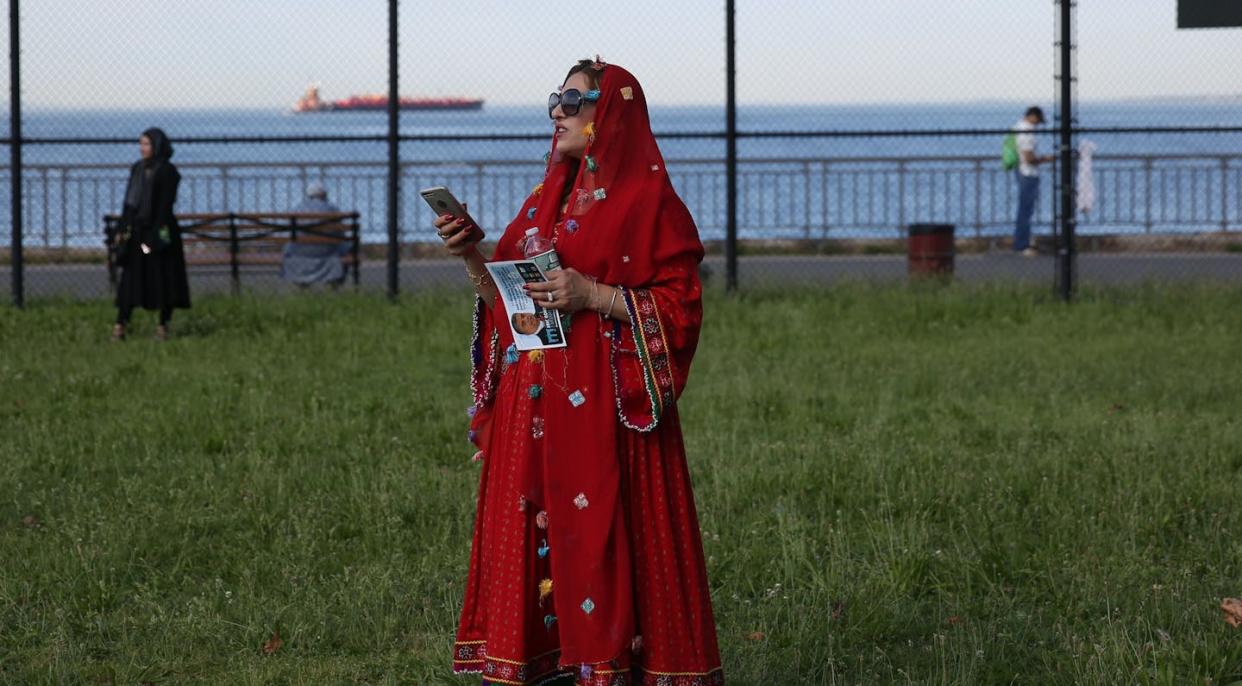Muslim women who are registered to vote are more likely to donate money and volunteer than nonvoters

Civic engagement – including volunteering and registering to vote – rather than religiosity was more correlated with giving by Muslim American women, according to research we conducted with our colleagues at the Muslim Philanthropy Initiative.
All Muslims are supposed to contribute zakat, an obligatory form of giving. To meet this obligation, Muslims are required to give 2.5% of their surplus wealth to charities every year.
We found that 87% of all zakat given by Muslim American women came from registered voters. This is higher than the share of Muslim American women who are even eligible to vote, which a 2017 survey determined was 82%.
We also found that Muslim women who are registered to vote are 15 times more likely to volunteer than other Muslim women. And we determined that about 61% of the Muslim American women who said they volunteered gave nearly 94% of the total zakat contributions the participants in this study said they made in 2022.
The initiative, which is housed at the Indiana University Lilly Family School of Philanthropy, also found that the top three motives for U.S.-based Muslim women to give to charity or engage in other forms of generous behavior are having compassion toward people in need, feeling that their gift can make a difference, and believing that it is part of their religious duty.
The data for this study was collected by Social Science Research Solutions, a private firm that specializes in survey research in the United States. It recruited 3,355 adults to participate in the survey between February and April 2023 that included a representative sample of Muslim American women.
Why it matters
Our findings indicate that nonprofits eligible to receive zakat funds, but do not engage with Muslim American women, are losing out of valuable financial and volunteer resources for their mission.
This study adds to previous findings about how volunteering, giving and civic participation are positively correlated. We believe it is important for nonprofit leaders to cultivate strong relationships with their volunteers as part of their fundraising strategy.
What’s next
The Muslim Philanthropy Initiative is now conducting additional research through surveys and focus groups to get a more complete picture of how Muslim women give to charity and volunteer. In this next stage, we are seeking to identify the causes that Muslim women support the most through their charitable giving and volunteering.
The Research Brief is a short take about interesting academic work.
This article is republished from The Conversation, a nonprofit, independent news organization bringing you facts and trustworthy analysis to help you make sense of our complex world. It was written by: Shariq Siddiqui, Indiana University and Nausheena Hussain, Indiana University
Read more:
Shariq Siddiqui receives funding from Islamic Relief USA, Mirza Family Foundation, The John Templeton Foundation, Pillars Fund, Proteus Fund, United Mission for Relief, Zakat Foundation of America, PennyAppeal USA.
Nausheena Hussain does not work for, consult, own shares in or receive funding from any company or organization that would benefit from this article, and has disclosed no relevant affiliations beyond their academic appointment.

